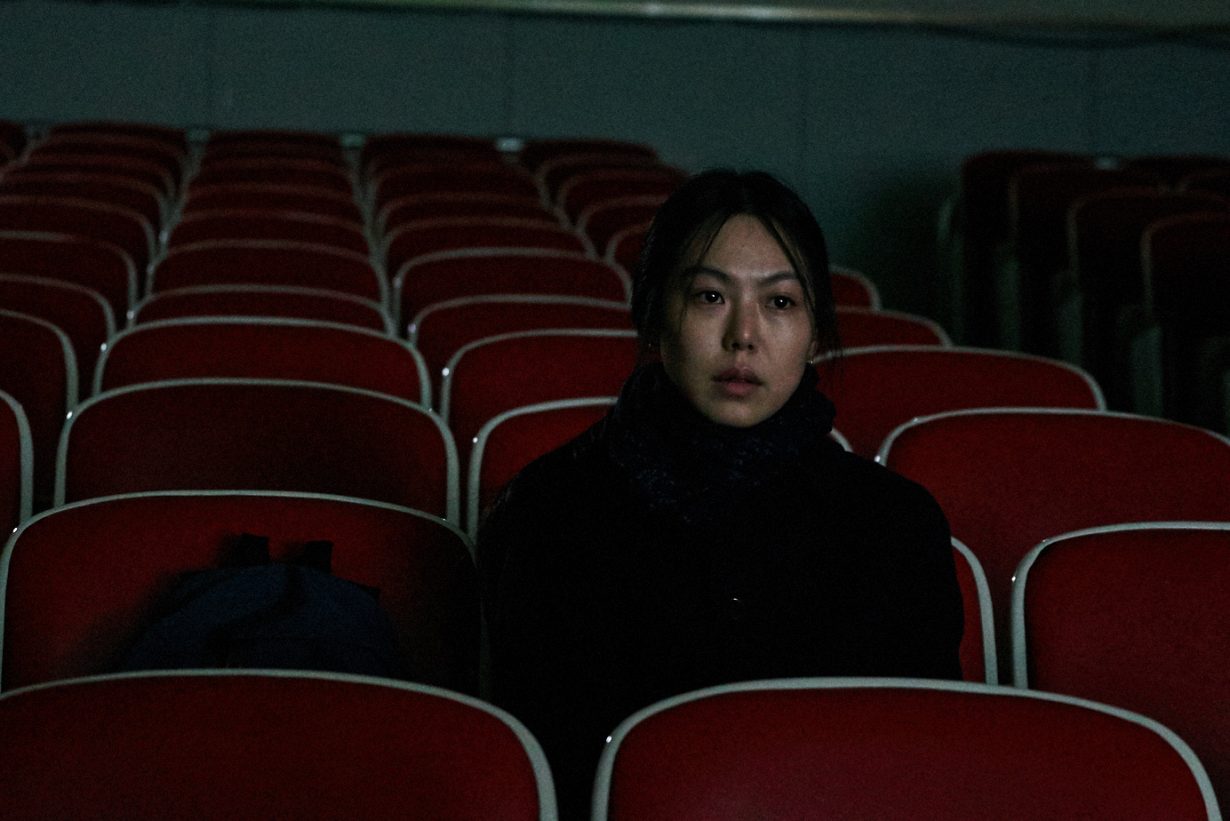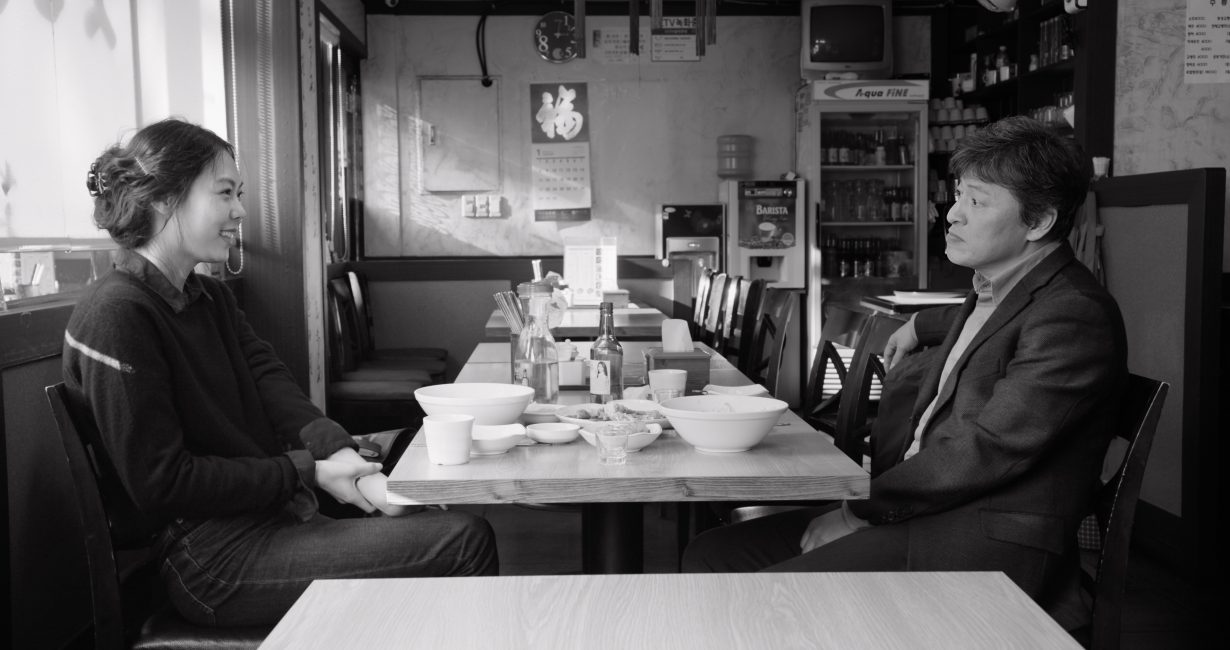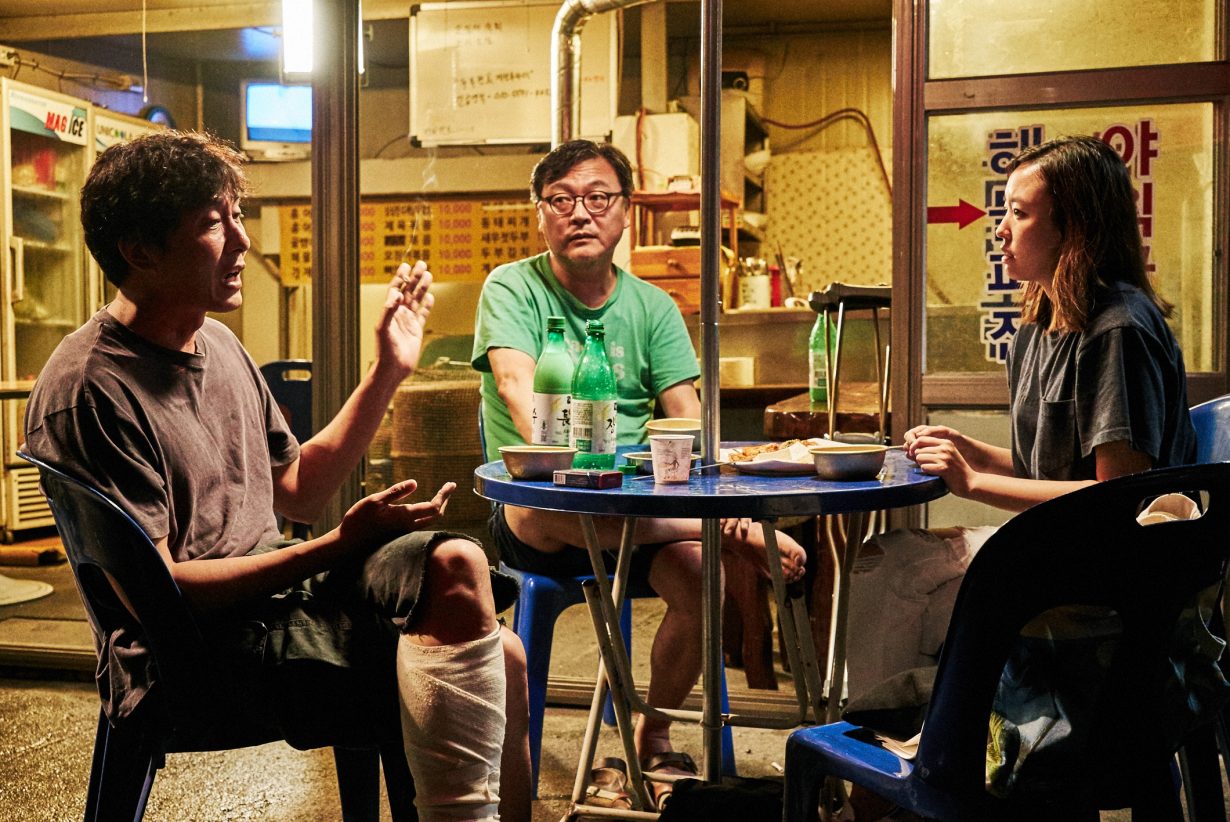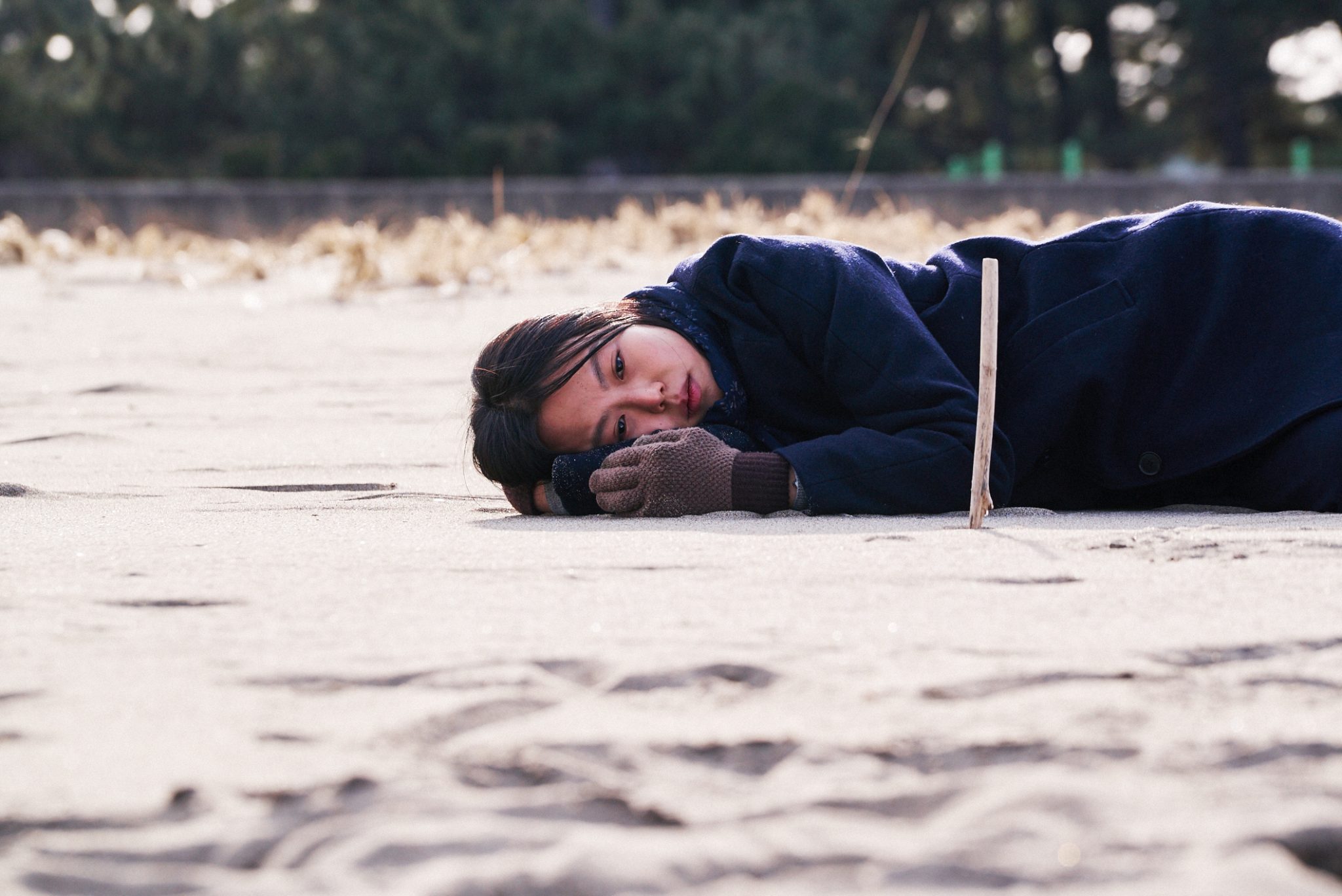Is the South Korean filmmaker’s vast and ever-growing catalogue of subtle, emotionally complex films the most potent conceptual-art project around?
So much keeps recurring across the intimate, wry and enigmatic films that Seoul-born director Hong Sang-soo has made over the past quarter-century: plot points, actors, characters’ biographies, locations in South Korea, even props. So much so that when watching his movies, you may be overtaken by déjà vu. The effect is similar to that which Sturtevant referred to when she described her art of repetition: ‘I create vertigo’.
The majestic Kim Min-hee, Hong’s romantic partner, has appeared in nine of his 28 features. In Right Now, Wrong Then (2015) she stars as a fledgling painter, and tells the awkward film director striving to sleep with her that she is “just someone who paints” (though apparently one who visits her studio every day). In Introduction (2021) Kim is a more established and vaguely pretentious artist in a minor role. “Painting every day keeps me healthy,” she tells an old friend. The characters that Kim plays are constantly falling asleep at odd moments. She passes out at a friend’s café after soju and sushi in Right Now, Wrong Then (2015), on a beach in On the Beach at Night Alone (2017) and again at a friend’s café, after plenty of makgeolli with a poet and friends, in Hong’s superb The Novelist’s Film (2022).
One could go on for a long while. Drinking bouts regularly lead to revelations, or ruptures. Beach trips do, too. People are constantly discussing suicide. A director – self-obsessed, incompetent, humbled, horny or all of the above – often figures.

One could also begin to sound like a conspiracy theorist, seeing connections everywhere and significance in everything. In 2000’s bipartite Virgin Stripped Bare by Her Bachelors, which seems to tell the tale of a love triangle from two diverging perspectives, actor Lee Eun-ju finds gloves at Gyeongbok Palace in Seoul that belong to an art dealer who is lusting after her. In Hotel by the River (2018) a woman steals gloves from a car resembling one that she previously owned.
Every filmmaker – every artist – has their own motifs and tics, of course. But in his vast, fast-growing body of work, Hong has made the repetition of his habits and obsessions into a structural foundation, especially over the past decade or so, as he has streamlined his process and approached it as a kind of conceptual-art project. He now does a great deal himself: he directs, produces, handles cinematography, sometimes composes music. Some films run only slightly over an hour, the length of an episode of prestige television, but made with a fraction of those budgets. (The modest draw from each production pays for the next one, he has said.) His plots are spare but charged. He writes early each morning, before the day’s shoot. A single shot can go well over ten minutes, with his camera zooming in suddenly on an actor at a meaningful moment.
Hong has cited Paul Cézanne – another master of close looking from varied angles – as his favourite artist. “Maybe his way of proportionalizing the abstract and the concrete is just right for me,” he told The New Yorker this year. But because of the plainspokenness of his films, their bracing candour, I think of him as more akin to Giorgio Morandi, who like Hong worked in his own hometown for most of his life, using the same basic materials, repeatedly, towards beguiling new ends.
Hong’s nimble method has resulted in a rare and thrilling run of films that allude to his life, form an evolving portrait of South Korean society and ultimately amount to an extended meditation on artistic creation – its frustrations, its social roots, its long odds, its mystery.
In Grass (2018), one of Hong’s most concise and effective efforts, Kim plays Areum (also her character’s name in The Day After, 2017), who sits with her laptop in a café (just east of Gyeongbok Palace) throughout the day, eavesdropping on fraught conversations and apparently incorpo- rating what she hears into her writing. A man asks what she’s working on. “It’s just sort of a diary,” she says. “But not a diary. Something unusual, for now.” At a nearby table, an ageing actor, talking about retirement and a suicide attempt, asks an acquaintance for a place to stay.

Such types – people nearing the end of their art careers or taking a break – have become common sights in Hong’s recent films (to the extent that, were he not so consistently prolific, one might worry about him).The novelist in The Novelist’s Film, Junhee, has been unable to write recently (“Maybe I’m all done,” she says). She visits a former colleague, Sewon, who left Seoul, and the writing world, to open a bookstore-café (“[Now] I only read what I really like,” Sewon says). In Front of Your Face (2021) features a former actor with a terminal illness mulling one last role. In On the Beach… Kim is an actor who has been abroad and is currently not working, following scrutiny over her relationship with a married director. (Hong was married when he and Kim began dating, around 2015.) Over a boozy dinner outside the capital, she tells a friend that “everyone’s moving here from Seoul”. “They can’t survive in Seoul,” comes the reply. “Same with me.” (Hong and Kim, as it happens, have decamped from the capital for Hanam, just to the east.)
It is not only older artists who are wracked by doubt. A young man in Introduction has quit acting because he felt bad about doing a kissing scene when he had a girlfriend. This exasperates his mother, who tasks her boyfriend, an experienced actor played by a captivating Hong veteran, Ki Joo-bong, to provide counsel (at a beachside restaurant, naturally). Ki delivers an unforgettable pep talk, losing his temper and screaming as he provides a curious (and perhaps not entirely helpful) viewpoint: “Whether sincere or just playing around, it’s all love!”
As he has honed his unusual process of making it up each morning, Hong has increasingly blurred that distinction between sincerity and play, life and art. People have lengthy, intricate discussions, in long deadpan shots. They talk about the weather and their hardships, and they forget about them as they hatch plans to make art. (It doesn’t always work out.)

Sitting in the café, Areum watches that defeated actor catch up with his friends as they sip liquor they brought into the shop. (Permissive shop owners are noble catalysts in Hong’s universe.) “And so people gather together,” she says in a touching, only slightly overwrought voiceover that seems to come from her writing. “Their emotions combine and give each other strength. Their lives become intertwined, and now they stand side by side. Why does that smuggled soju look so good? I’d like to steal a sip too. When will my chance come?” Right now: they invite her over. The beleaguered Junhee is also buoyed by some artistic camaraderie in The Novelist’s Film, shot in black-and-white, as she convinces Gil-soo, an actor on hiatus (played by Kim) to appear with her husband in a short that she has long hoped to make.
It won’t be documentary, she says, but “everything has to be real”. It sounds like a peculiar endeavour. Near the end of Hong’s film, we catch a glimpse of hers, black and white giving way to colour. It is achingly raw and tender. Describing it here feels improper, but watching it brought to mind a showstopping scene at the start of Hong’s effort. Junhee is at Sewon’s bookstore, talking with a young employee who is learning Korean Sign Language. Junhee asks her to sign a sentence: “The day is still bright, but soon it will grow dark. While the day lingers, let’s enjoy a nice walk.” The young woman shows her how to say it, and they proceed to practise it – again, again and again.
Hong Sang-soo’s latest feature, Walk Up (2022), is premiering at Toronto International Film Festival in September
